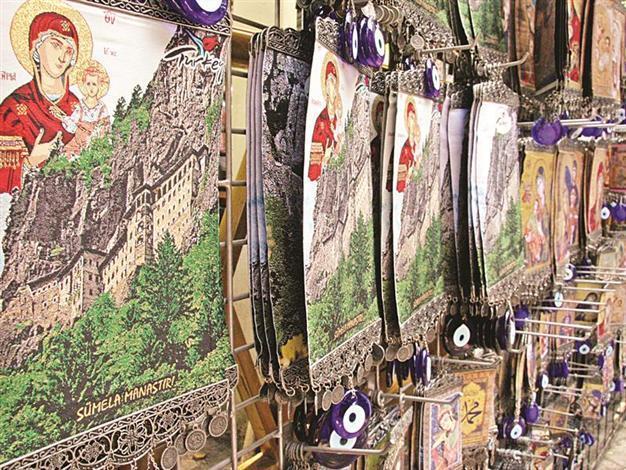Turkey at risk of losing its makers of handicrafts
Wilco van HERPEN ISTANBUL - Hürriyet Daily News

DHA photo
Traveling around in Turkey for more than six years, I have observed a big problem for the country. You might call this a cry for help. This is about heroes in Turkey and keeping a nostalgic part of Turkey alive.For me, the heroes in Turkey are the people that are still doing a job that does not give them enough money to earn a decent living, but they keep on doing this job because they don’t know any other and … because their father and grandfather have been doing this job. They simply do not want to leave the profession they have learned and continue doing what they have seen their whole life. Their job is sacred for them. This is exactly the problem for Turkey, but it might also contain the seeds of a solution. It can be a problem in daily life but, at the same time, I think this is a solution because those people are doing a job that nobody can replace. From the moment I started my own show, I have been fighting for some recognition for those people. I think things will change in Turkey, we have to conserve what we’ve got at the same time.
Conservation of jobs
Turkey has changed a lot during recent years, but the richness in Turkey is the conservation of jobs that are not productive at all. Those people are the treasure of Turkey and I cannot imagine that, within a country that has become so wealthy, we cannot find any financial support for such people.
It is the duty of the government to support these kinds of local initiatives and, if possible, encourage young Turkish students and entrepreneurs to continue with these professions. Five years ago, I went to Cappadocia and saw some beautiful slippers. I wondered where they came from and whether they had been made in Turkey; but when I learned that the slippers came from Nepal, I was furious. Here in Turkey, we have all these people with know-how; how come we don’t use it?
If you want to put your country on the map as a unique place for tourists, you need to give them this unique experience. Turkey is one of those countries that still has something unique to offer. In many ways, Turkey has been put on the map in recent years, but there is still a lot to do. People should invest in the education of handcrafts, as this money will easily come back. Tourists love Turkey’s handmade souvenirs, not some cheap plastic Chinese thingies. Another advantage is that you have something unique in your hands after buying your souvenir.
Of course, there are still some unique handicrafts, and some of them have been given a new lease on life with the help of the government or big companies. These projects might cost some money, but it is not always money that should be the main factor. Here in Turkey, we still have the know-how of those old professions; we still have these craftsmen. It is not too late yet (although we have lost many of these unique professions already), as we can still save a number of unique, skilled people and what they are doing.
Treasure hunting
After that, start doing some “treasure hunting” in other countries for lost ancient artifacts that disappeared during the early 20th century due to the fanatic obsessive research of a lot of “archeologists.” There is still time enough to get those treasures; generally they are stored under good conditions, so there will be some time to “save” those treasures.
Fortunately, I have seen a trend the last couple of years. Young people studying at art schools have rediscovered these old, traditional professions. They turn the old traditional designs into new, modern pieces of art or “just” into practical and usable souvenirs or things you can use in your hose. It made me really happy to see the change in mentality. Not everything that is old is stupid; not everything that is old is unusable. One of the best examples is felt. Last year, a big company in Turkey started a project to support the existence and education of those old professions that are under threat of being lost forever. It is not too late yet, but we must be diligent in ensuring these handcrafts are not lost forever.
















